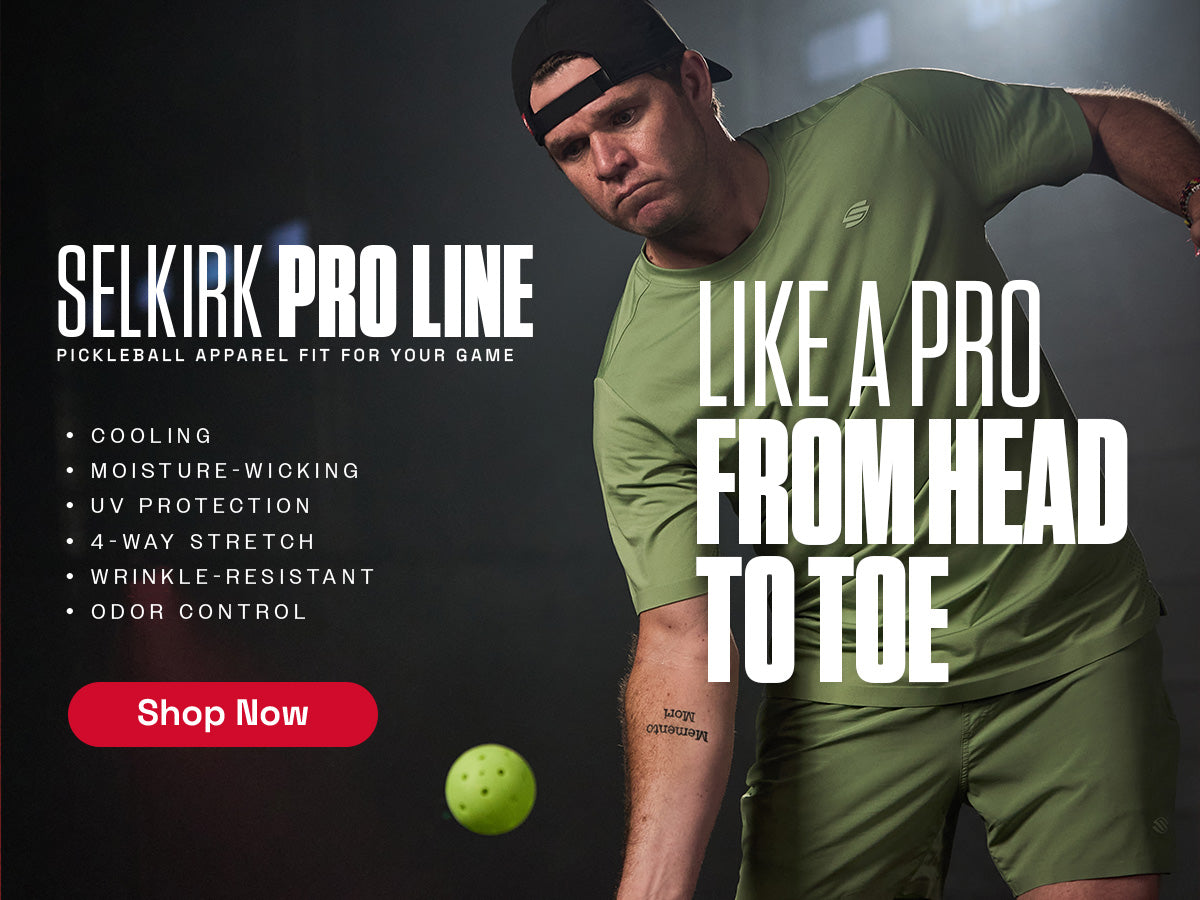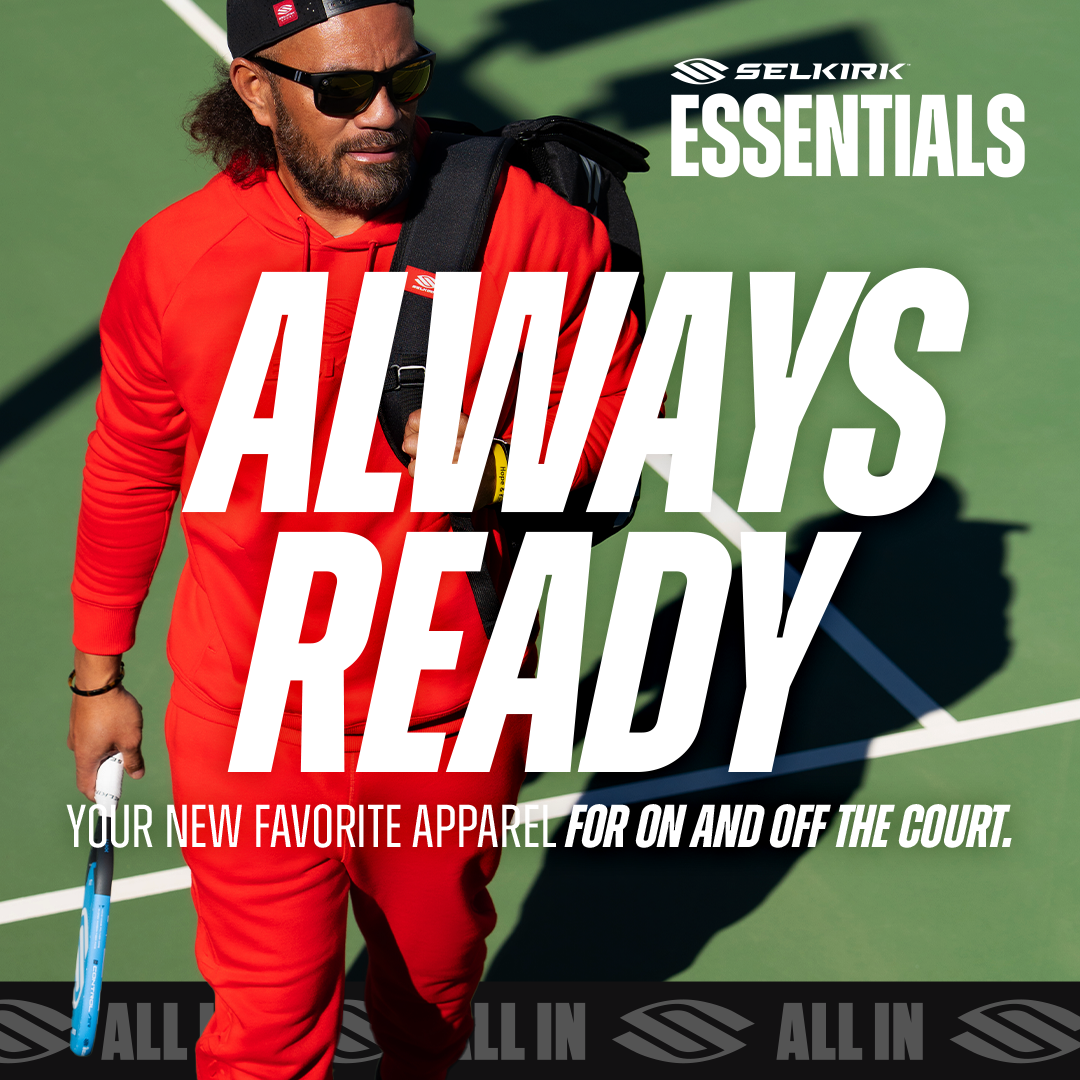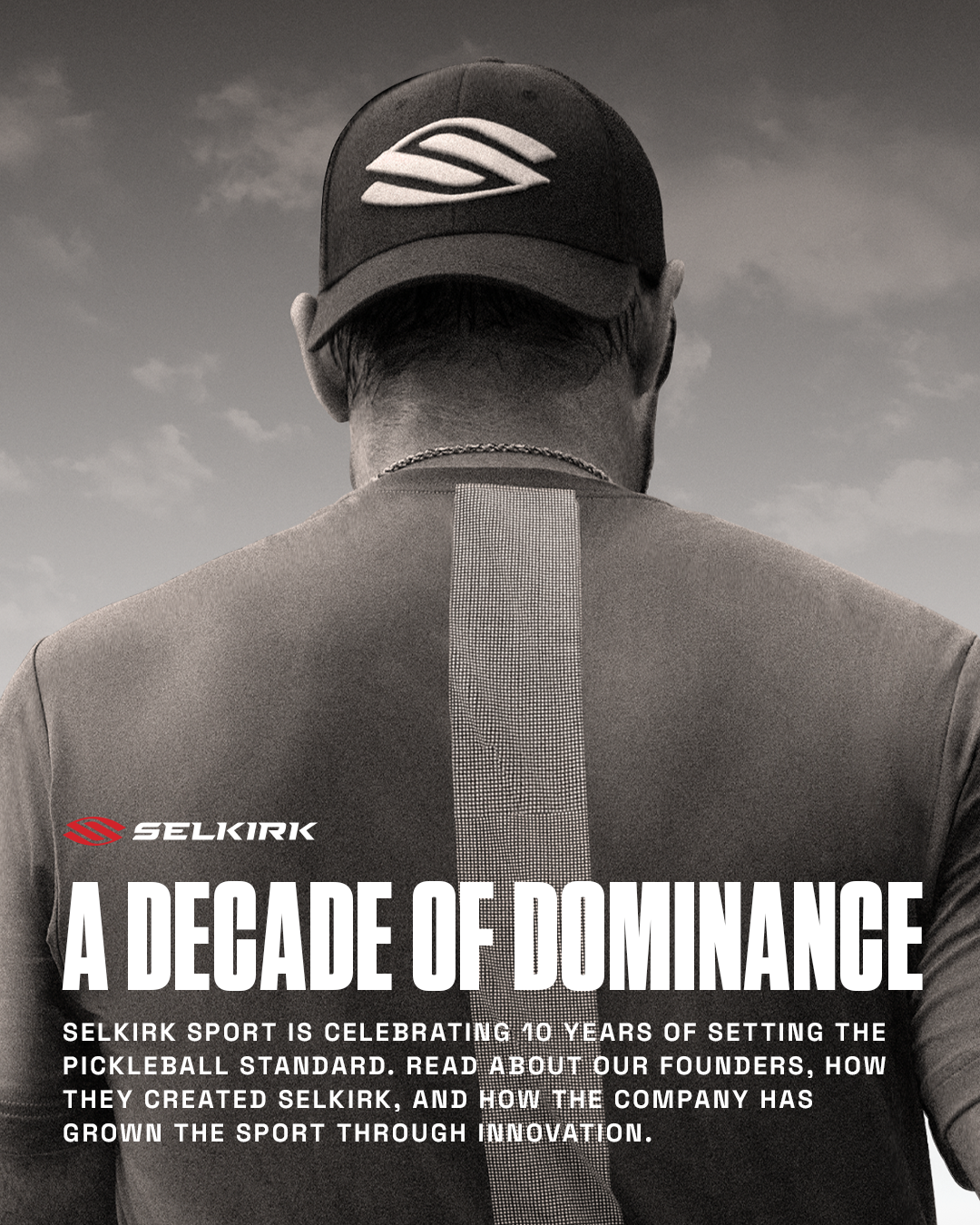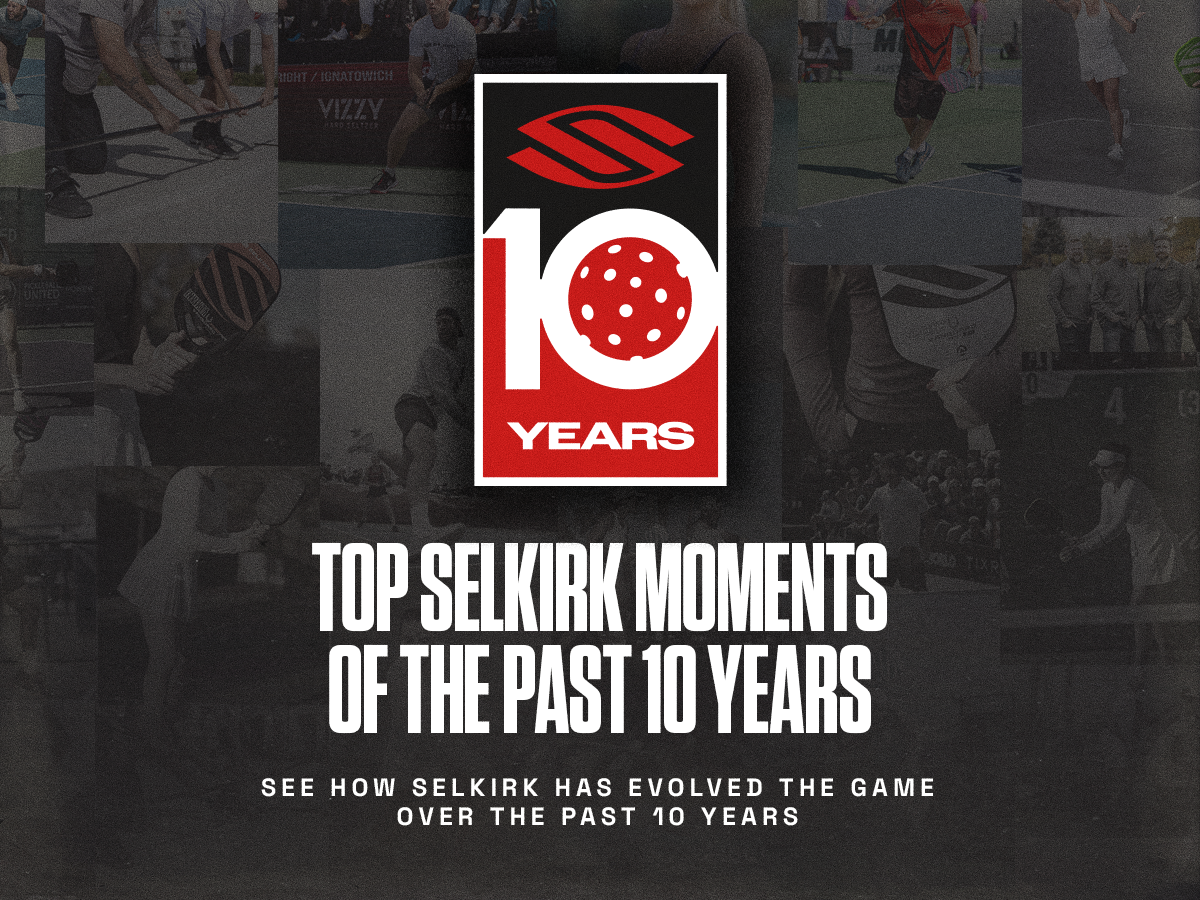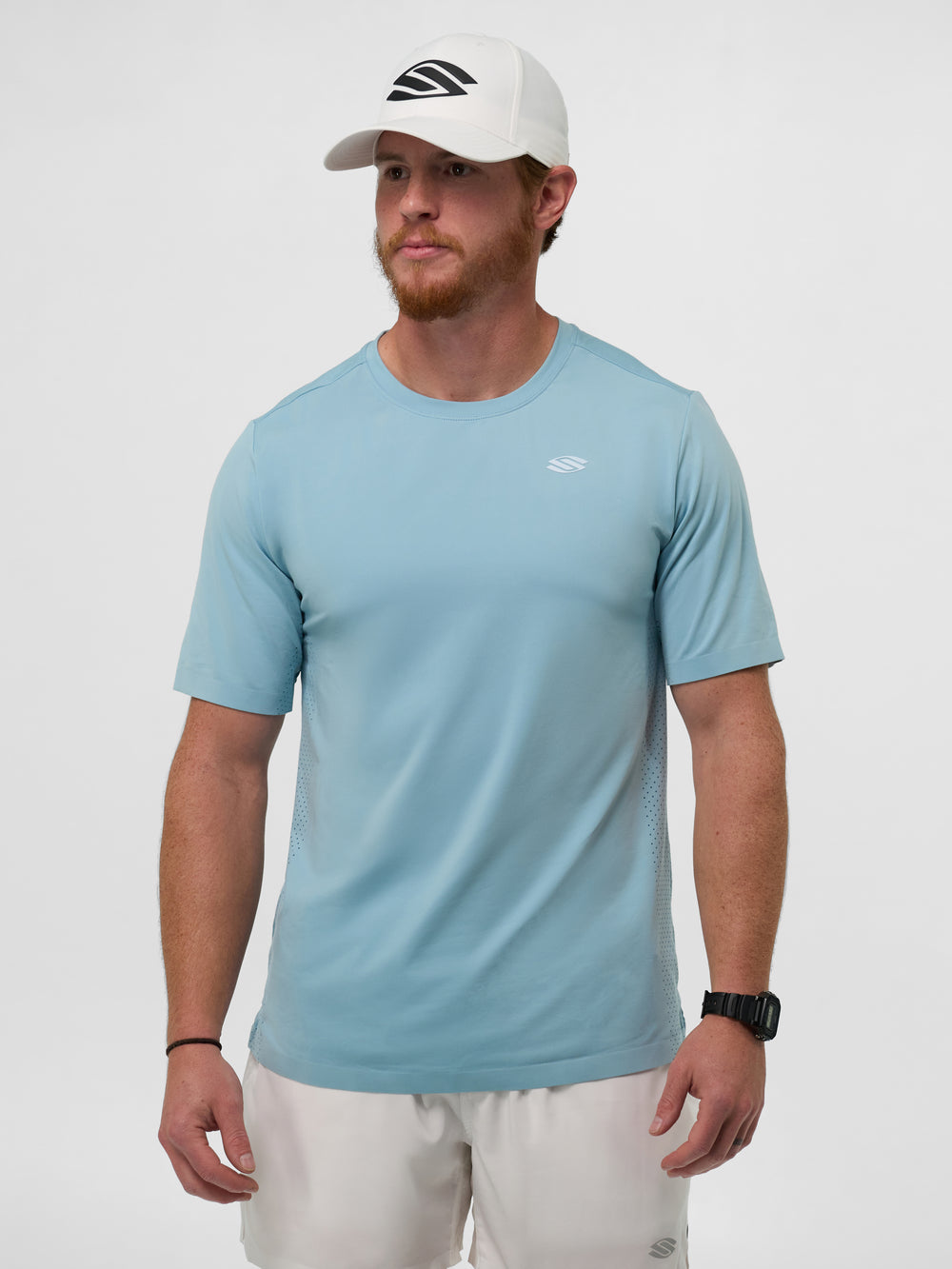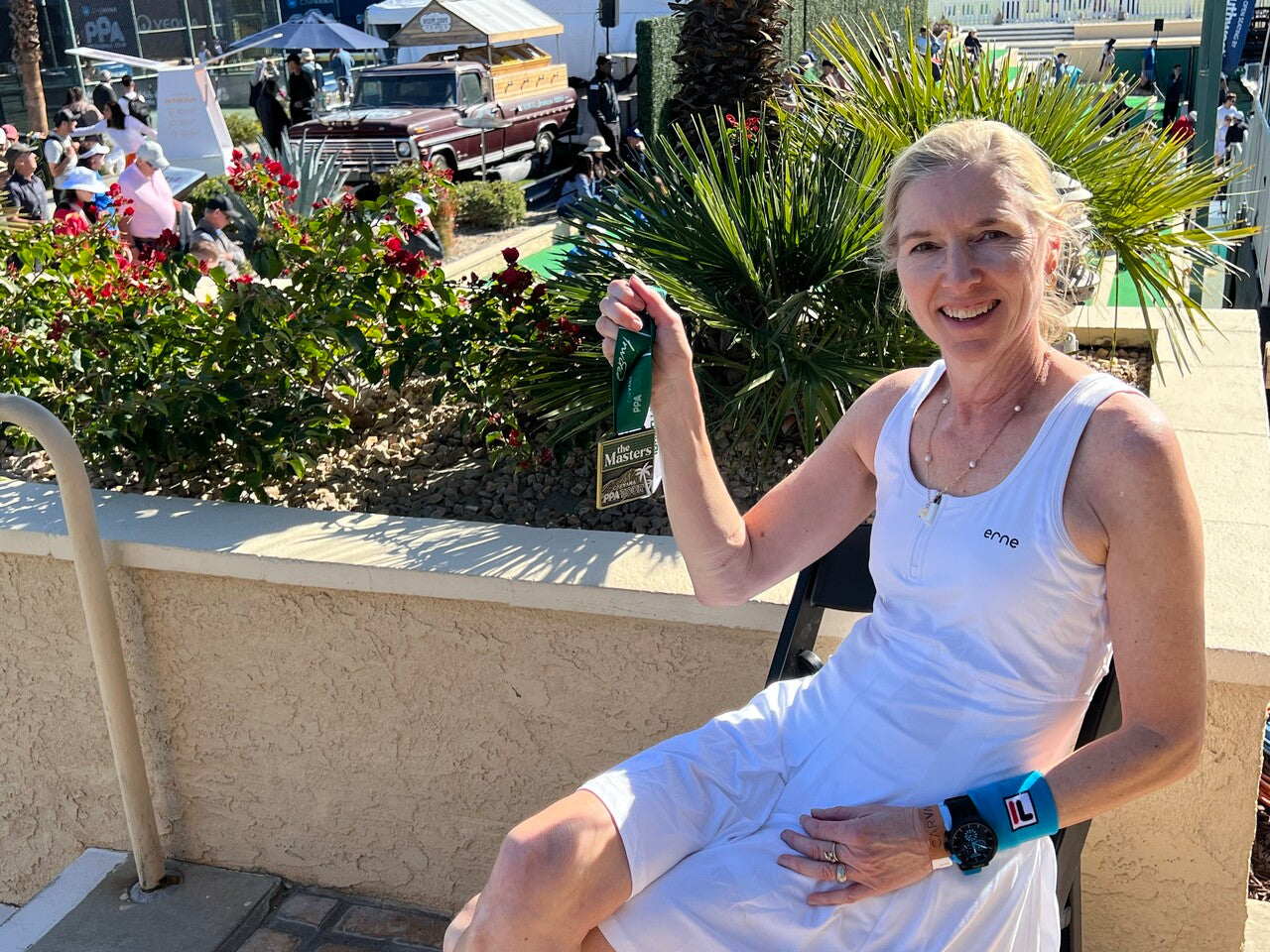
Lynn Beck, an accomplished screenwriter and playwright, has lived a life story as captivating as any she might pen.
From being an assistant theater director in Moscow during the collapse of the Soviet Union to surviving grave injuries, Beck’s experiences could inspire countless screenplays.
But it’s her resilience that defines her narrative most strongly.
Like many pickleball players, Beck was a lifelong racket sport athlete. Her pedigree includes a competitive junior tennis career, high school badminton, and squash at the University of Pennsylvania.
Also a member of the volleyball and softball teams, Beck is a true competitor at heart. Unfortunately, years of intense activity took a toll on her rotator cuff, forcing her to quit tennis.
“When I discovered that there isn’t an overhand serve in pickleball, I thought I’d give it a try,” Beck recalls. “It was love at first shot.” But the rotator cuff isn’t the only injury Beck has had to overcome. Although an avid participant of traditional sports, Beck found herself drawn to extreme sports early in life.
Beck has been windsurfing since she was a teenager, but while living in California as a new mother, she wanted to try her hand at kite surfing. As she was preparing her equipment, a huge gust of wind caught her off balance.
Turned upside down, she wasn’t able to release her equipment before she was dragged into a sand berm with cement buried underneath.
Her femur broke in two and her hip suffered six breaks. Bedridden for 6 weeks, Beck faced not only physical recovery but also the challenge of caring for her two young children, ages 3 and 5.
“The overwhelming emotion I had with that was anger because I felt like I needed to be successful at something in life and I knew I could be at kite surfing, but that was over,” she recalls. “But one of the things I've come to learn is that no one gets an easy life. We all have challenges, but it's how we face them, recover, and learn from them that matters.”
In all, Beck underwent four surgeries before fully recovering from the accident, though she still feels pain to this day — a constant lesson in humility, she says. What helps alleviate the pain, though, is leading an active lifestyle.
For her, that now means daily trips to the pickleball courts.
“When you get older you have to be a little more respectful of your body, but pickleball is such a great way to stay active and make friends because the community is so welcoming,” she says.
Passionate about sports and her children, Beck would frequently volunteer as a coach for her children’s sports teams. Now an empty nester, Beck missed coaching, so she started a youth pickleball team in her hometown.
There was just one problem: The town of Ashton, Idaho, has a population of 964.
So, Beck had to heavily recruit students in grades 6-12 to participate. As most students already participated in a school-sanctioned sport, Beck recruited many students for whom pickleball is their first athletic competition.
“We were kind of like the Bad News Bears because we’re a small rural town playing against the local big city, Idaho Falls, which has tennis teams and 4,000 students,” Beck says. “The first game, we got demolished and I thought my kids would be so disheartened, but at the end of the match, they were still smiling and they couldn’t wait for the next competition.”
Beck was so inspired by their positive attitude that she decided to try her own hand at tournaments.
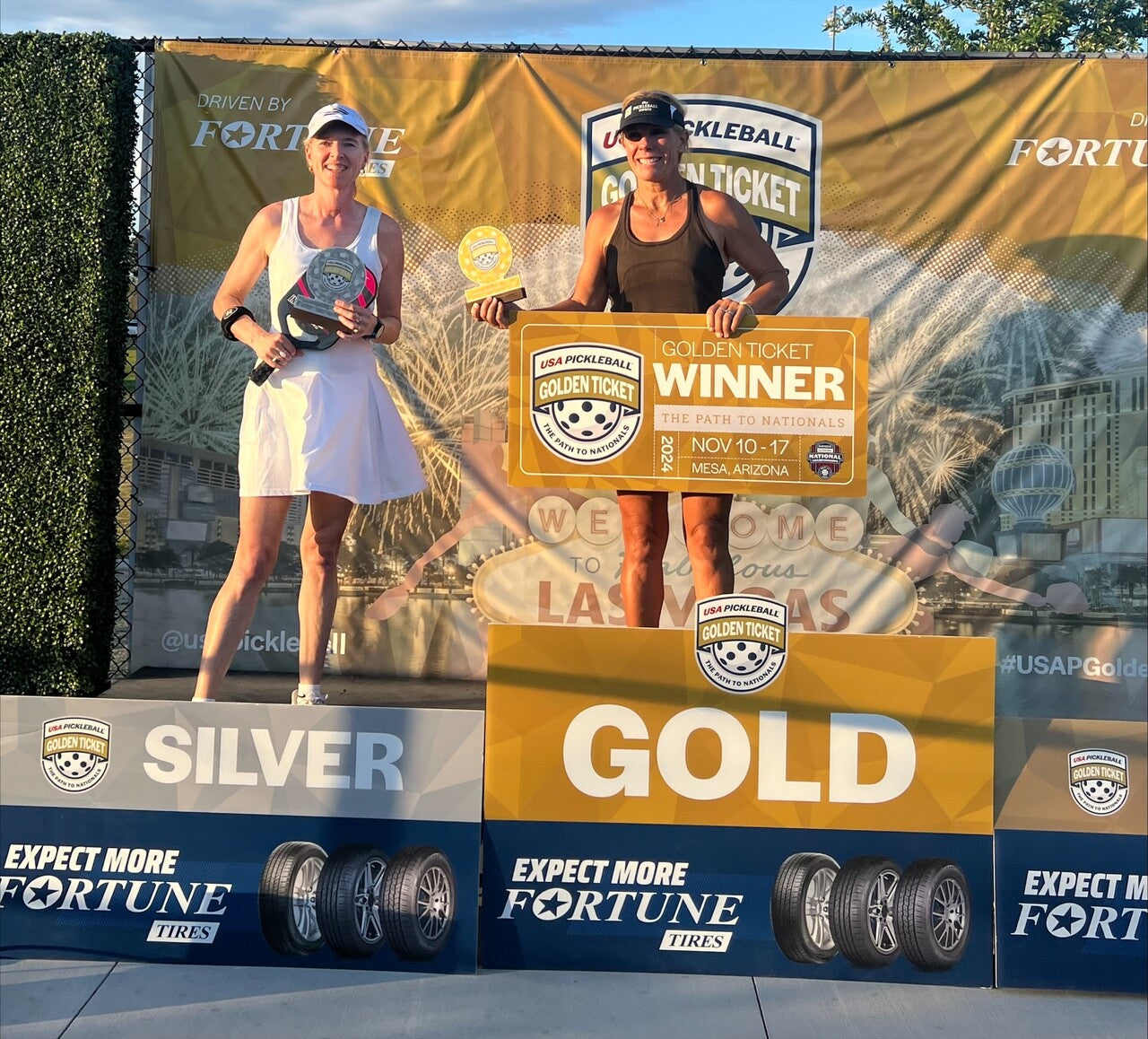
She just completed her third national tournament, where she earned silver in women’s doubles and singles. Now, she jokes that her silver trophies are in her home gym as motivation to work harder.
“When you only play with the same people in your community, your game starts to morph and everyone plays the same style,” she says. “Whereas, when you play in tournaments, you get all kinds of funky spins and shots and it forces your game to expand.”
Now, Beck is using her experience and passion for the game to write a book about pickleball and how it can impact people both physically and mentally.
“I really believe pickleball is the perfect antidote to the loneliness epidemic,” Beck says. “I think loneliness was exacerbated during COVID-19, but there’s an APA study that shows one out of three people are lonely. Many Americans, especially youth, are also struggling with anxiety and depression. Pickleball is a great way to help people of all ages connect, be physically and emotionally healthy, and have fun!”












